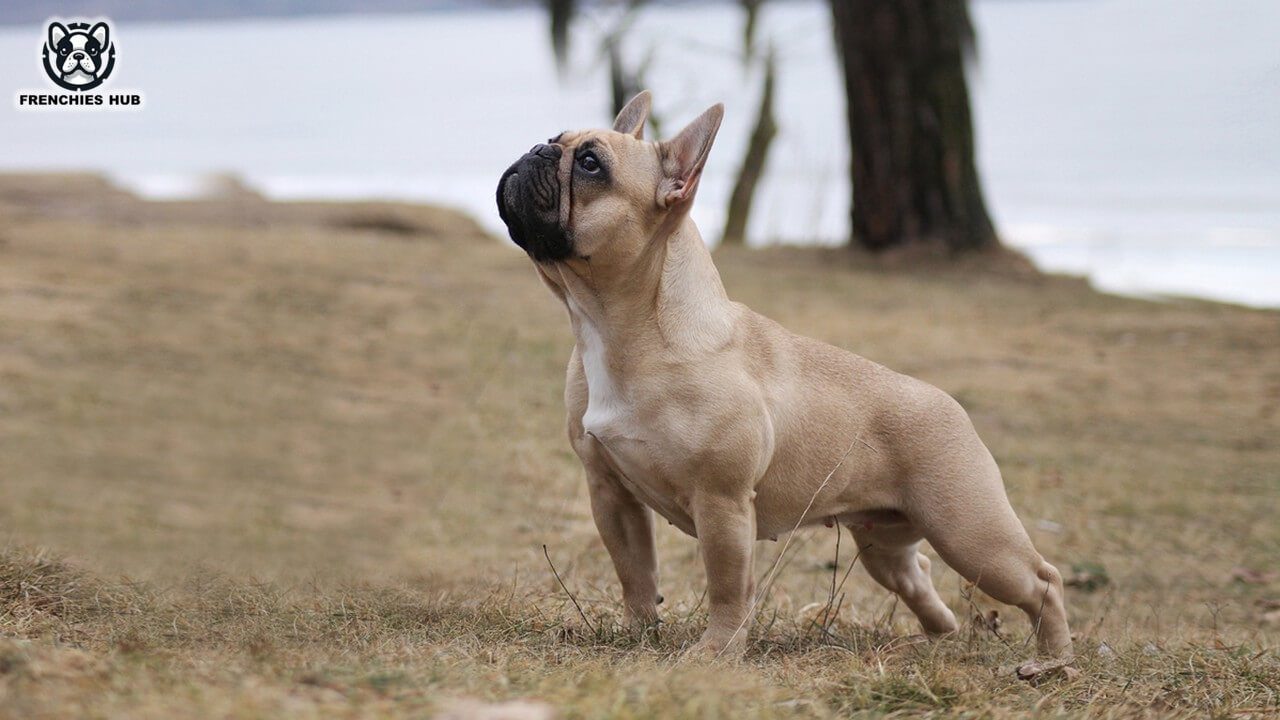As a long-time French Bulldog owner and enthusiast, I’ve observed first-hand how skin allergies can affect these charming, pudgy little canines. It’s heart-wrenching to see your sweet-natured Frenchie, usually brimming with a goofy personality and love for their pet parents, struggle with uncomfortable skin conditions. Often, the sturdy build and smushed faces we adore in French Bulldogs come with a downside – a susceptibility to various health problems, including itching, hot spots, and bumps.
Finding the right solution for your pooch’s allergies is crucial, as many owners have discovered since welcoming these dogs into their hearts and homes. Through personal experience and extensive research, I’ve learned the importance of understanding the unique breed characteristics that make French Bulldogs more susceptible to these issues. This guide will cover what you need to know about these common problems and how to effectively treat and prevent them, ensuring your Frenchie’s demeanor doesn’t turn sour due to discomfort.
French Bulldog Coat Characteristics
As someone who has spent years living with and loving French Bulldogs, I’ve become intimately familiar with their coat characteristics. A Frenchie’s coat is a delight to touch, being smooth, short, and fine. This makes them reasonably easy to groom. Their loose skin, which forms adorable wrinkles around the head and shoulders, is one of their most endearing features. However, this distinctive feature also requires special care. Regular brushing, ideally once a week, helps manage their coat by removing loose and dead hairs. Despite being average shedders, a gentle brush can easily maintain their coat’s health and appearance.
Understanding their body type is crucial for any pet parent. It’s not just about keeping their coat in good shape but also about being vigilant for signs of skin allergies. The skin beneath their coat can develop lesions, hot spots, or become flaky – all indicators of potential allergies. Keeping a close eye during grooming sessions allows pet parents to quickly check and address any worrying changes in their Frenchie’s skin condition. This hands-on approach is essential in catching and managing skin allergies early, ensuring the well-being of these adorable companions.
Signs of Skin Problems in French Bulldogs
Identifying the symptoms and signs that indicate skin issues in French Bulldogs.
What Causes French Bulldog Skin Problems?
The rise in popularity of French Bulldogs, as reported by the American Kennel Club in 2021, reveals that they were the second most popular breed in the US, just behind Labrador Retrievers. This pup-ularity comes with its own set of challenges, especially concerning the health of these beloved canines. The high demand for French Bulldog pups has unfortunately led to irresponsible breeding practices. As a French Bulldog enthusiast, I’ve observed how such breeding methods can result in serious health issues, particularly skin-related conditions.
Overbreeding has become a significant problem, leading to a variety of health conditions. Skin problems are notably prevalent among French Bulldogs and are an issue they are likely to suffer from. These skin issues often manifest in various forms, making it essential for dog owners and breeders to be aware of and address these concerns. Understanding the specific needs and potential health risks of French Bulldogs is crucial for ensuring their well-being and managing any underlying skin conditions effectively.
5 Common Causes of Skin Problems in French Bulldogs
As a proud owner of a Frenchie, I’ve taken a closer look at the causes and symptoms of skin problems that are all too common in this breed. Inflammation, bumps, and allergies are not just issues but daily challenges we face. The treatments often require understanding the underlying factors that contribute to these conditions. From my experience, French Bulldogs are likely to suffer from these skin issues due to a combination of genetic predisposition, environmental triggers, dietary sensitivities, inadequate grooming, and sometimes, stress. Recognizing these factors is the first step in effectively managing your pup’s health and ensuring your pooch isn’t dogging by these persistent problems.
#1 SKIN FOLD DERMATITIS
The endearing skin folds of French Bulldogs, while being a key aspect of their charm, can lead to skin fold dermatitis, a condition common in breeds with wrinkles. These skin folds tend to:
- Retain moisture,
- Accumulate heat, and
- Induce chafing. These conditions often result in skin fold dermatitis, with usual symptoms being redness, moisture, and discomfort in the skin folds.
- Apart from facial folds, be vigilant about:
- The tail fold,
- The area between toes and paw pads,
- The armpits,
- The groin area,
- The ear folds.
- TREATMENT FOR SKIN FOLD DERMATITIS
- To maintain your Frenchie’s skin health, focus on:
- Reducing inflammation,
- Eliminating existing infections,
- Keeping skin areas clean and dry. Veterinary-prescribed medications are essential to treat infections. Topical or oral steroids may be used for itching and irritation, and regular cleansing with a suitable antimicrobial product is essential for preventing bacterial growth.
- Maintaining a healthy weight for your Frenchie is crucial to manage and prevent skin fold dermatitis, as obesity can exacerbate skin fold issues.
#2 PYODERMA
Pyoderma, a bacterial skin infection, often occurs in French Bulldogs due to the moist environment of their skin folds.
Symptoms include:
- Red, raised pustules,
- Itching,
- Flaky or crusty skin,
- Hair loss,
- Moisture and musty odor in affected areas.
- TREATMENT FOR PYODERMA
Treatment includes antibiotics prescribed by your vet and possibly antihistamines or steroids for allergies. Regular cleaning with medicated shampoos and keeping bedding clean and dry are also important preventive measures.
#3 HOT SPOTS
Hot spots, also known as acute moist dermatitis, are a painful and rapidly developing skin condition common in dogs and cats.
Symptoms include:
- Small, red skin bumps,
- Rapidly spreading red, painful, oozing sores,
- Swelling and hair loss.
- VETERINARY TREATMENT FOR HOT SPOTS
Veterinary intervention is crucial for hot spots. Treatments may include antibiotics, steroids, allergy medication, antiseptics, and potentially a cone to prevent scratching.
HOME CARE FOR HOT SPOTS
Preventive measures involve addressing the root cause of itching, such as food allergies or fleas. Using a pet-safe spray can provide relief and stop the cycle of irritation and scratching.
#4 CANINE ACNE
- Canine acne is common in French Bulldogs and typically appears around the lips and muzzle.
- VETERINARY TREATMENT FOR CANINE ACNE
- Treatments may include benzoyl peroxide ointments, steroids, and antibiotics if infection is present.
- HOME CARE FOR CANINE ACNE
- Prevention involves avoiding irritants and not squeezing the pimples to prevent infection spread.
#5 CONTACT DERMATITIS
Contact dermatitis results from skin contact with allergens or irritants and can cause skin bumps, redness, swelling, and itching, especially on body parts that touch the ground.
Common causes include:
- Detergents,
- Toxic plants,
- Road salt,
- Fertilizers,
- Pesticides,
- Certain landscape mulches,
- Heat and sun,
- Flea collars.
HOME CARE FOR CONTACT DERMATITIS
Mild cases can be managed at home with gentle cleaning and hypoallergenic medicated shampoos. It’s important to soothe the skin and remove irritants, and strengthen your dog’s immune system to prevent future outbreaks.
Skin Allergies in French Bulldogs
- A deep dive into the specific allergies affecting the skin of French Bulldogs.
- Common Skin Allergy Locations
- Highlighting the areas on French Bulldogs where skin allergies commonly manifest.
The Connection Between Skin and Food Allergies
In my experience with French Bulldogs, I’ve observed a strong link between food allergies and skin problems. These allergies often lead to inflammatory reactions on the skin, such as dermatitis, crusting lesions, hives, and pruritus. The primary source of these allergies is typically an intolerance to certain animal proteins. Meat and chicken often emerge as the main culprits, but some dogs may also react to other allergens like corn, milk, and eggs. Understanding this connection is crucial in managing both dietary and dermatological health in these prone canines.
Treatment Options
Treating skin allergies in French Bulldogs requires a multifaceted approach. Starting with proper hygiene, it’s crucial to bathe your Frenchie regularly using organic, sulfate-free, hypoallergenic shampoo. These shampoos not only help to control and reduce chronic itchiness but also offer additional anti-inflammatories like hydrocortisone and aloe vera to calm the red, inflamed, itchy areas.
In contrast, food allergies present a more complex challenge. Consulting with a veterinarian to tailor a specific diet is essential. Often, an elimination trial is recommended to identify problematic protein sources. This process involves feeding your dog a single-ingredient food over a period of eight weeks, closely monitoring for any discomfort or allergic reactions. The trial should include real ingredients, focusing on single sources of animal and vegetable protein, as well as carbohydrate calories. Ideal food combinations might be rabbit and peas or fish and potato, either cooked at home or commercially produced. Care should be taken to avoid natural flavors or unidentified proteins that could skew the trial’s results.
During the elimination trial, it’s vital to refrain from giving your Frenchie any treats, table food, supplements, or flavored medications, as these can influence the outcome. After the eight-week period, you should switch your dog back to its regular diet and observe if the allergies reappear.
In addition to dietary management, Probiotics serve as an inexpensive tool in combating allergies. They not only help reduce inflammation associated with allergic reactions but also play a vital role in supporting and strengthening the dog’s immune and digestive systems. This holistic approach to managing allergies can significantly improve your Frenchie’s quality of life.
Keys to Managing Skin Allergies
A key strategy in managing skin allergies in a French Bulldog involves switching to a fresh food diet. This change can significantly reduce or even eliminate allergies. While commercial dry kibble and wet foods may be attractive due to their lower prices and longer shelf life, they often lack the quality nutrition a dog needs at every life stage. The heating process used in making kibble typically ruins many of the wholesome ingredients found in dog food. In contrast, fresh food diets are packed with real, vital ingredients crucial for your dog’s health, including healthy fats and essential fatty acids like Omega-3 and Omega-6, which are integral to maintaining healthy skin.
Here’s a useful guide for transitioning your Frenchie to a fresh food diet:
| Condition | Dietary Needs and Adjustments |
| Coat Color Changes | Increase amino acids, found in protein (>75 grams per 1000 calories). Use our calculator for converting label percentages. |
| Concurrent GI Signs | Avoid foods high in tryptamine and histamine like dairy, fermented vegetables, and meats (including bacon). Opt for a single-ingredient diet trial. |
| Chronic Itching and Dermatitis | Enrich the diet with Vitamin E, B Vitamins, Zinc, omega-6, and omega-3 fatty acids (from fish oil). Incorporate a probiotic and a single-ingredient diet trial. |
| Dull Coat and Scaling | Modify EPA and DHA levels in the diet, typically through added fish oil; consider foods with added zinc. |
| Dandruff and Crustiness | Increase Zinc and Vitamin A in their diet. |
In conclusion,
managing skin allergies in French Bulldogs is a responsibility that many devoted pet owners face. These charming and affectionate companions, with their unique coat characteristics and wrinkled skin, are susceptible to various skin issues that can impact their quality of life. As a dedicated French Bulldog enthusiast, I’ve witnessed the challenges these allergies can pose firsthand.
Understanding the specific causes of skin problems, such as skin fold dermatitis, pyoderma, hot spots, canine acne, and contact dermatitis, is crucial. Recognizing the signs and symptoms early allows for prompt veterinary intervention and effective treatment. It’s essential to maintain a healthy weight, keep their skin folds clean and dry, and address underlying issues like allergies and irritants.

